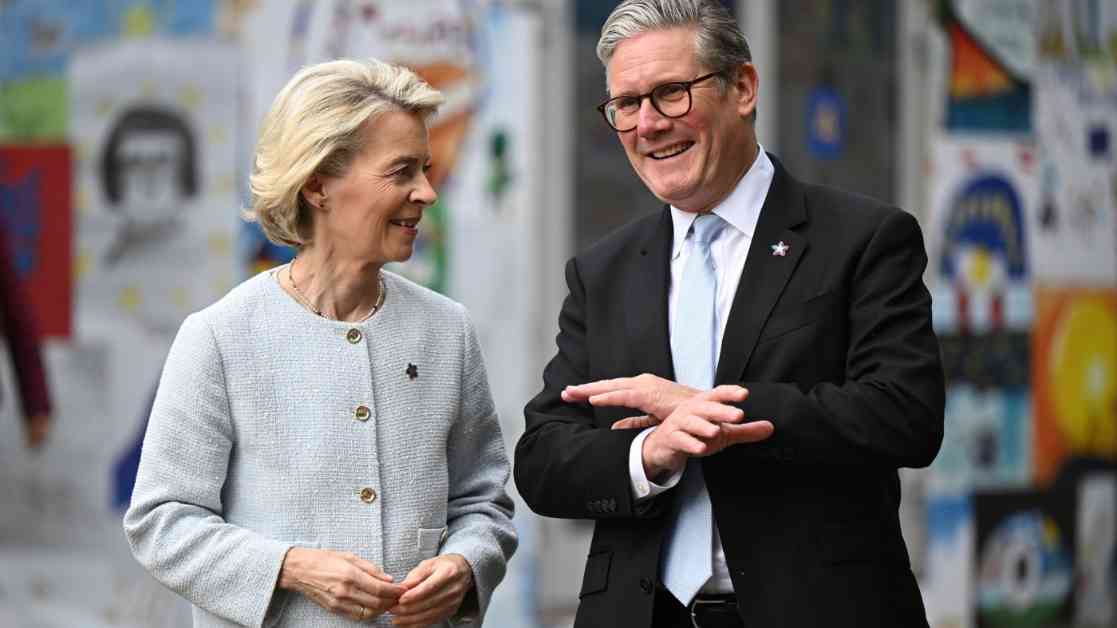As Britain and the European Union gear up for their first summit post-Brexit, it’s shaping up to be more of a reluctant reunion than a joyous reconciliation. Picture this: Ursula von der Leyen, president of the European Commission, and Keir Starmer, prime minister of the U.K., awkwardly greeting each other before their bilateral meeting at the 6th European Political Community summit in Albania on May 16. It’s like when exes realize they still have to work together for the sake of the kids, in this case, the political and economic ties that bind them.
Are Britain and the EU really considering getting back together? Well, recent polls suggest that a majority of Britons now regret the decision to leave the EU, commonly referred to as “Bregret” or “Regrexit.” The aftermath of Brexit has been a rollercoaster ride, with economic consequences and strained relations with their biggest trading partner. Despite the lingering doubts and regrets, there seems to be a sense of resignation on the British side, accepting their fate outside the EU. So, Starmer is attempting a “reset” with the EU, likening it to a couple agreeing on a temporary custody arrangement for the kids while they figure out the long-term plan.
The summit between Britain and the EU will focus on the finer details rather than the broad strokes, as they already have a tariff-free trade agreement in place since 2020. Discussions will revolve around issues like fishing rights, student work opportunities, and passport gate access. However, some topics, such as single market participation and freedom of movement, are off the table for Britain, which aims to strike its own trade deals and tighten immigration controls. The elephant in the room remains the current geopolitical landscape, with the war in Ukraine and the shifting dynamics under the Trump administration pushing Britain and the EU to reassess their strategic partnership.
In the grand scheme of things, this summit serves as a symbolic gesture of unity in the face of shared challenges, highlighting the importance of collaboration in a world fraught with uncertainties. Whether it’s navigating trade agreements or bolstering defense ties, both sides recognize the need to present a united front amidst global turmoil. Despite the tumultuous history of Brexit and the lingering bitterness, the looming threats and common interests compel Britain and the EU to find common ground and work towards a shared future.






















